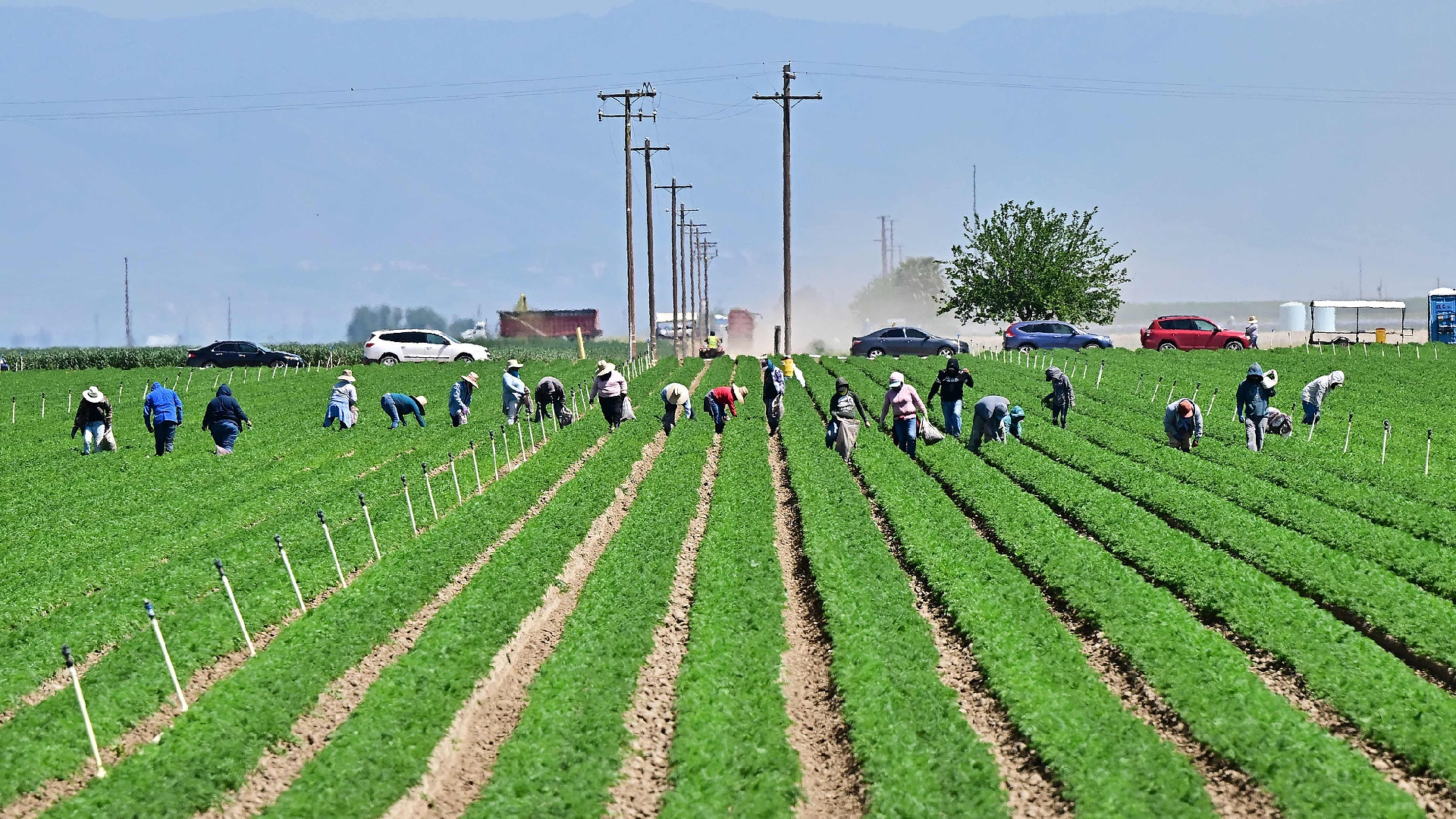California farmers on the brink of financial disaster as Trump's tariffs take a heavy toll
California's farmers are encountering increasing difficulties as U.S. President Donald Trump's tariffs disrupt global markets and provoke retaliatory measures from significant trading partners such as China and Canada.

The state's agricultural sector, valued at $59 billion and the largest in the nation, faces a dual financial threat: escalating costs from tariffs on essential farm inputs and equipment and diminishing export markets as trading partners impose retaliatory tariffs.
Christine Gemperle, an almond farmer based in Stanislaus County, conveyed the overwhelming distress farmers are experiencing. "We got hammered. We lost the whole Chinese market to Australia," she shared with the Los Angeles Times on Sunday, recalling similar adverse effects during Trump's initial term.
Gemperle and her brother cultivate 55 hectares of almonds and market their produce through Blue Diamond Growers. "At this point, I'm on the verge of losing everything," she expressed.
The almond industry is especially precarious, with California accounting for 76 percent of the global almond supply, according to the California Almond Board. Once a significant market, China has turned to alternative suppliers like Australia amid trade tensions. Prices for almonds were starting to stabilize after earlier tariff-induced losses, but new tariffs have brought back uncertainty for growers.
Citrus farmers are also feeling the effects. Bianca Kaprielian, co-CEO of Creekside Organics in Reedley, mentioned that her company has experienced a significant decline in orders from Canada since it enacted a 25 percent retaliatory tariff on U.S. goods. Her family operates a citrus farm covering about 200 hectares and typically exports oranges and lemons to Canada and other markets. "We have seen those orders go down or dry up," Kaprielian told the Los Angeles Times, expressing concern that lost export markets might lead to oversupply in the domestic market, further driving down prices.
The wine industry in California is similarly impacted. Canada, which imports over $1 billion worth of California wine every year, has removed American wines from retail shelves in several provinces as part of its response to U.S. tariffs.
The current circumstances evoke troubling parallels to the tariff actions taken during Trump’s first term against China, which resulted in an estimated $27 billion in lost agricultural exports for U.S. farmers in 2018, with 71 percent of the losses tied to soybeans, according to the American Soybean Association. Many farmers did not recover their international market share, despite federal bailouts.
George Frisvold, chair of agribusiness economics and policy at the University of Arizona, observed that U.S. farmers earned 10-13 percent less during Trump’s first term compared to the Obama administration, even while receiving double the federal subsidies. "There were payments to farmers, but they didn't compensate for those losses," Frisvold told Farm Progress, a prominent agricultural news network. "I've never talked to a farmer who said, 'I'd rather have my income come from government payments than the market.'"
Caleb Ragland, president of the American Soybean Association, emphasized the long-term impact of tariffs: "Tariffs break trust," he said, as reported by CNBC. "It's a lot harder to find new customers than it is to retain ones that you already have."
The economic impact is not limited to lost international sales. Farmers are also facing escalating costs for imported equipment and supplies attributable to U.S. tariffs on foreign goods. These additional expenses are squeezing already narrow profit margins throughout the agricultural sector.
The anxiety among farmers is palpable as they contend with these difficulties. "Nobody wants to be in the center of chaos," Gemperle remarked, noting that the mounting uncertainty disrupts her sleep at night. Kaprielian shared similar feelings: "It feels more chaotic than any time that I can remember."
Anna Muller for TROIB News
Find more stories on Business, Economy and Finance in TROIB business












